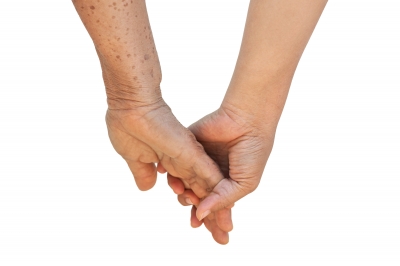Humanitarian Practices
The dictionary defines a humanitarian as someone who is devoted to the promotion of human welfare and the advancement of social reforms. Being a humanitarian does not necessarily involve getting on the next plane to a third-world country, hugging children, and following the typical western “do-gooder” stereotype. In fact, humanitarianism encompasses a variety of political, social, and economic activities appealing to the full spectrum of humanity. Right in our own backyard, we have many causes that we can stand up for to make a positive difference.
Being a humanitarian is rooted in our compassionate nature. Professor Dacher Keltner, author of The Compassionate Instinct (2010) and Director of Greater Good Science Centre, together with other scientists have provided scientific evidence that we are compassionate by nature, and this helps us to survive and evolve successfully as a species. It is the ability to step authentically into the shoes, skin, heart, and eyes of others, and to care enough to do something helpful. It is the ability to look deeper, beyond the differences that separate us, to find the common needs, emotions, and values that make us human. To be compassionate, to look at our internal and external differences as resources, and to choose to focus on the commonality that binds us all are the values and skills that we need to develop to unite the world and solve problems that cannot be solved at a national level.
A humanitarian understands that while countries, religions, politics, and races have boundaries, our humanity transcends them; we are in this world together. At the same time, while knowing that the focus is on “we,” a humanitarian also acknowledges that every single person (every “I”) has the power to change, to care, to inspire others, and to generate a pervasive chain of changes that could make the world a better place for everyone.
Our humanitarian quest is not only confined to humans, but also encompasses all sentient beings (as explained in Chapter 6 of the book Choices of Now). To further support this, in July 2012, a group of eminent neuroscientists gathered at the University of Cambridge to discuss the question, “Are animals conscious?” At the end of this meeting, which was called the Cambridge Declaration on Consciousness, David Edelman of the Neurosciences Institute of La Jolla, California, Philip Low of Stanford University, and Christof Koch of the California Institute of Technology publicly proclaimed that:
“[…] nonhuman animals have the neuroanatomical, neurochemical, and neurophysical substrates of conscious states along with the capacity to exhibit intentional behaviors. Consequently, the weight of evidence indicates that humans are not unique in possessing the neurological substrates that generate consciousness. Nonhuman animals, including all mammals and birds, and many other creatures, including octopuses, also possess these neurological substrates.”
In short, science is stating that animals, just like humans, are self-aware, and able to feel complex emotions and make intentional choices. Our humanitarian quests stem from our humanity, and as Dr. Albert Schweitzer said, our humanity must include all living creatures. Besides, animals and plants are the parts of the ecosystem that support our existence.
There are many ways in which we can embark on our humanitarian practice; here are some ideas to get us started:
(1) select your field of passion and learn about it; humanitarianism is a wide area and the Internet is filled with humanitarian causes; click here for a list of international organisations and NGOs in Singapore;
(2) take action on your field of choice; give your passion a voice, choose an outlet to express it: (a) choose to join Internet petitions on animal and human rights; (b) start a virtual discussion with like-minded groups to launch a social project; (c) use social media—blogs, Facebook, Twitter, & Youtube—to promote important causes; (d) donate and raise money to support worthwhile projects;
(3) volunteer in local social projects; help out at: old folk homes, animal shelters, poor shelters, centres for the learning disabled, troubled youth centres, prison rehabilitation centres, etc. A simple google search will provide many options when you decide to volunteer in such places;
(4) take meaningful vacations to poor countries to offer your help; there are non-profit organisations that can assist you; the help you offer may be aligned to your existing skill-sets, such as your ability to teach, cook, manage projects, build, etc.;
(5) volunteer to help in challenging places that are hit by natural disasters, famine and diseases, war and oppression that would require more information and preparation; there are relief and specialised organisations supported by the United Nations that you can consult with;
(6) practise random acts of kindness (RAK); notice how your behaviours affect others, and hold yourself accountable for your actions; kindness is contagious—one good deed deserves another; buy a poor elderly person a meal for a week, offer to clean the home of someone in need, help a child to learn every week, help someone whose car is broken down, clear your storeroom and donate useful items to a poor family; these are just some of the RAK that you can perform weekly or daily; watch this inspiring short clip to get yourself in the “RAK mood”: Kindness Boomerang;
